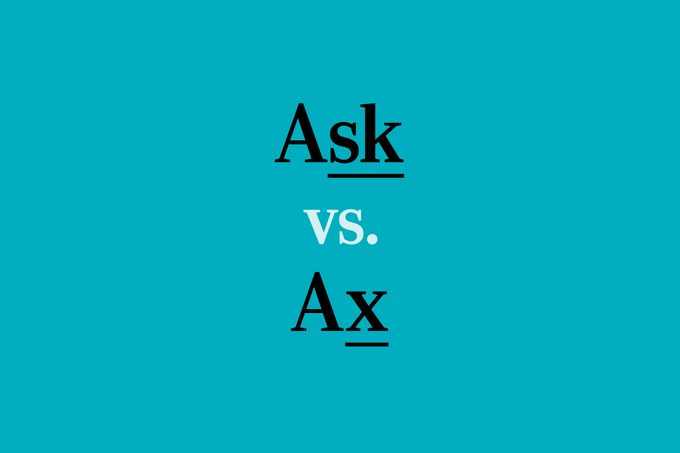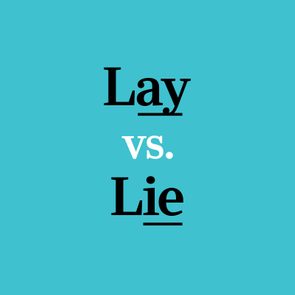In the battle of ask vs. ax, why does only one pronunciation get respect?

Ask vs. Ax: Which Pronunciation Is Correct?

The minute I open my mouth, it’s clear that I’m from New York (Brooklyn, to be exact). And though my high school speech teachers did their best to beat the accent out of me—and I do tamp it down—it’s definitely still there (especially if I’ve had too little sleep or too much wine). But I’m not ashamed of the way I talk; the accents and regionalisms that permeate American speech reflect this country’s linguistic diversity and rich cultural history.
Some of those regionalisms are the stuff of friendly debate (hoagie or sub? soda or pop?), but others seem to trigger unfair judgments about the speaker’s intelligence. Take ask vs. ax, for instance. There’s a widespread belief that one pronunciation is correct and the other is just plain wrong. To get to the bottom of the matter, I spoke with two linguistics experts: Michael Adams, PhD, a professor of English and linguistics at Indiana University, and Grant Barrett, a linguist, lexicographer and co-host of the radio show A Way with Words.
Read on for their surprising insights into this questionable little word—one that’s literally at the heart of our questions.
Get Reader’s Digest’s Read Up newsletter for more grammar, humor, travel, tech and fun facts all week long.
What is the history of ask vs. ax?
Like many of the words we use today, ask comes from Old English. “The original word in Old English [dating back to the eighth century] is the verb acsian, which means ‘to inquire, to ask,’ as we would say today,” says Adams. “But notice the order of the sounds: It’s ax. It’s not ask, and, sure enough, it was pronounced ax–ian.”
So how did we get from ax to ask? According to Adams, we owe that to metathesis, a process in which the order of sounds in a word is reversed. “And sometimes that seems systematic, and sometimes it doesn’t.” Another example of metathesis: “In Middle English, the animals that sing outside your window and wake you up in the morning are bridde, not birds. And if there are three of them in a row on a log, one of them is the thridde bridde. Both thridde and bridde underwent metathesis to become third bird.”
“That consonant cluster of s and k is just difficult in the mouth,” Barrett explains, so change was inevitable. As Old English evolved into Middle and then modern English, the word became asken and then ask. But the ax pronunciation stuck around—and ax and ask coexisted for a long time.
“Around the year 1400, it looks like the two were equally available to speakers,” says Adams. He notes that one of the great Chaucer manuscripts (the Ellesmere Manuscript) includes ax and ask on the same page. “We don’t know whether that was Chaucer’s choice or the scribe’s, but it doesn’t make that much difference. Somebody around the year 1400 couldn’t tell the difference between the two forms of the same word.”
And in 1535, the Coverdale Bible, the first full English translation, instructed readers of Matthew 7:7 to “axe and it shall be given you.” Again, this isn’t surprising: “There were lots of different varieties of English floating around at the same time,” Barrett says. “This was before any kind of real effort was made to standardize the language.”
What are the linguistic and social influences of ask vs. ax?
Over time, the ask pronunciation was selected as the basis for Standard English. “It’s not like a committee got together and selected it,” says Adams. “It was just dominant in the London area in the southeast of England.”
But in the northwest of England, “there were plenty of farmers out there axing questions of one another, because education and that metathesis hadn’t caught up with them,” Adams explains. “Nobody trained them out of it to conform to the ‘standard,’ and so they continued to just say what they’d always said: ax.”
When people from those regions came to the American Colonies in the 17th and 18th centuries, they brought their pronunciation of ax with them. And then slavery further complicated the picture. “The folks the enslaved people were interacting with, a lot of times they were Scots or Scots-Irish middle managers on the plantations,” says Barrett. “And these are the people that the enslaved would pick up the most English from.”
What is the perception surrounding the modern-day usage of ask vs. ax?
Plenty of people still use ax instead of ask. “If you live in the South, especially if you live in a Black community where ax has been spoken over generations, you probably use ax,” says Adams. “And that’s not because Black speakers in America are saying the word wrong. They’re saying the older form of the word because that’s the form that Black folks learned from white folks during slavery.”
Adams adds that although ax is often identified as a feature of African American English, “you’ll find white speakers—especially in the South—who say ax as well.”
“The everyday person who complains about this usage thinks it’s a marker of miseducation or ignorance, isn’t right. It is not,” says Barrett.
So is ax wrong and ask is right?
“Ax is a perfectly valid pronunciation,” Barrett says. “Now, that doesn’t mean that there isn’t a prestige dialect in the United States—of course there is. And it doesn’t mean that you won’t be judged for saying ax. But there’s a lot of really logical, historical reasons to say ax, and nothing whatsoever to do with education. And you will hear it in the speech of highly educated people who are unconscious that they’re saying it.”
The joke, says Adams, “if you think about it historically, is that while we’re quite convinced that ask is standard now, it wasn’t how it started.”
“Anytime someone makes a negative judgment about the speech of another person or another group of people, it says more about the judger, than it does the judged,” Barrett adds. “It’s within the mind of the person doing the judging, but it’s almost never about the speech of the judged. When you’ve got millions of people with a dialect feature, you can’t say that those millions of people are just ignorant. Language doesn’t work that way.”
So, ask and ax are both correct, depending on who you ask and where you ax them.
About the experts
|
Why trust us
At Reader’s Digest, we’re committed to producing high-quality content by writers with expertise and experience in their field in consultation with relevant, qualified experts. We rely on reputable primary sources, including government and professional organizations and academic institutions as well as our writers’ personal experiences where appropriate. For this piece on the pronunciation of ask vs. ax, Jo Ann Liguori tapped her 30 years of experience as a copy chief and editor for national publications. We verify all facts and data, back them with credible sourcing and revisit them over time to ensure they remain accurate and up to date. Read more about our team, our contributors and our editorial policies.
Sources:
- Michael Adams, professor of English and linguistics at Indiana University Bloomington and author of Slayer Slang: A Buffy the Vampire Slayer Lexicon; phone interview, June 11, 2025
- Grant Barrett, linguist, lexicographer and co-host of A Way with Words, a national radio show about language; phone interview, June 13, 2025
- Oxford English Dictionary: “Ask”
- Bible Hub: “Matthew 7”






















